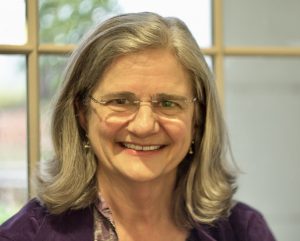Dr. Margaret Drickamer, professor of geriatric medicine and medical director of UNC Hospice, participated in an international consensus study aimed at defining and normalizing advance care planning. The results have been published in The Lancet Oncology.

The Roz Chast graphic memoir Why can’t we talk about something more pleasant is a comedic response to a conversation about aging that many would rather avoid. But UNC geriatrician and palliative care physician Margaret Drickamer, MD, is working to turn this often awkward subject into a normal part of every aging patient and family conversation. She recently joined an international team of physicians and researchers to define advance care planning (ACP) and develop recommendations for how to initiate early conversations about it, depending on an individual’s readiness to engage.
Supported by the European Association for Palliative Care, the global consensus study considered acceptable ways to look at end of life issues, based on the knowledge and experience of more than 100 geriatricians and palliative care providers around the world. The results were published in The Lancet Oncology.
“In many ways, the subject is the elephant in the room,” said Dr. Drickamer who has actively promoted advance care planning since the early 80s. “We looked for incites and opinions in an iterative process in order to make a more universal definition.”
ACP is a process in which patients define their goals and preferences for future medical care for themselves and discuss them with their relatives and health-care providers. These preferences can also be documented in an advance care directive, to be used if at some point patients are unable to express their preferences for themselves.
“It’s weighing how much one would be willing to go through for what chance of what outcome, and asking what that means to the individual,” said Dr. Drickamer. “Many fear being cognitively or physically impaired more than fearing death. For resuscitation and then surviving, what does that mean. What are the chances one would be physically or cognitively impaired versus time to get to the end. Advance care planning helps people think through this process.”
She also says encouraging a timely discussion of goals and preferences for future medical care can prevent treatments that patients wouldn’t want to receive, especially in the final stages of life. Furthermore, a discussion with relatives and health-care providers about preferences can increase the chances that a patient’s wishes can be respected in medical decision-making.
“ACP can enable relatives to feel more comfortable about making medical decisions with health-care providers, when a patient is no longer able to do so,” said Dr. Drickamer.
With the U.S. elderly population expected to grow by nearly 80 percent in the next 25 years, combined with estimated shortages in trained geriatricians and palliative care clinicians, many predict a looming healthcare crisis. UNC’s division of geriatrics is working to train new physicians, integrate geriatrics into primary care and expand interprofessional education in geriatrics.
Dr. Drickamer came to UNC four years ago after 27 years of teaching at Yale School of Medicine, working in ethics at the forefront of the evolution of advance care planning. She was recently appointed Medical Director of UNC Hospice.